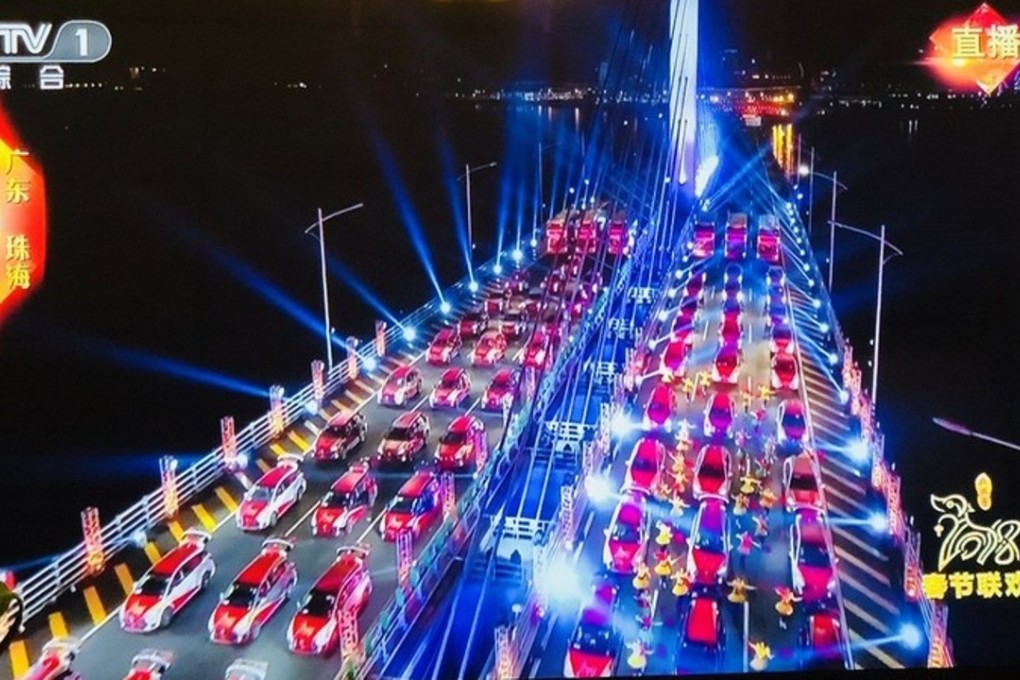China shows off autonomous driving technology in annual Spring Festival Gala
Annual Spring Festival Gala in China is a tightly scripted show beamed to an estimated 800 million viewers. A segment featuring autonomous cars, boats and drones underlined the country’s ambitions to lead in advanced technology

If there were any doubts about China’s ambitions to lead the world in artificial intelligence (AI), the country laid them to rest by showing off its autonomous driving technologies during this year’s Spring Festival Gala, which by some estimates is the world’s most-watched television broadcast.
A segment during the five-hour show featured more than a hundred of BYD’s electric cars powered by Baidu Inc.’s Apollo autonomous driving technology. The vehicles, which had roof-mounted sensors, piloted themselves along the Hong Kong-Zhuhai-Macau bridge in figure-of-eights, a number that is considered auspicious by many Chinese.
In the same segment, nearly a hundred driverless boats by Yunzhou Tech sailed under the bridge in the formation of an arrowhead, while 300 light-equipped drones by Beijing-based ZeroTech and Shenzhen’s High Great danced in synchronised fashion in the air as part of a large-scale drone performance, arranging themselves into a three-dimensional shape of a dolphin.
At one point, a host of performers wielding red flags ran alongside the neatly parked cars, while a troupe of acrobats and dancers performed alongside the vehicles. The Hong Kong-Zhuhai-Macau bridge itself is an ambitious project that was completed in November, and is expected to be open to vehicles later this year.